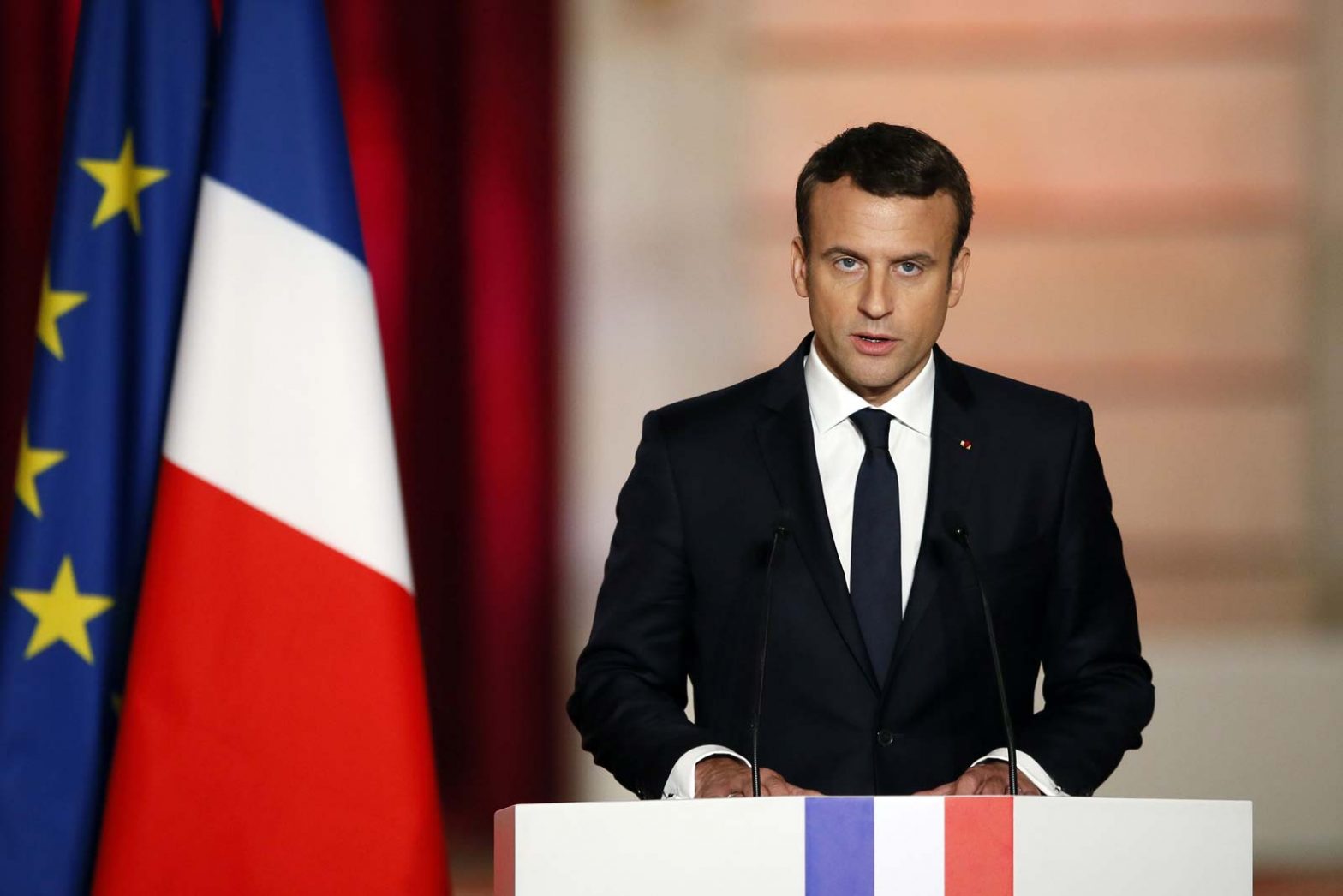(BBC): French schools will close for at least three weeks as part of new national restrictions to fight rising Covid cases, President Emmanuel Macron says.
Mr Macron said that schools would move to remote learning from next week.
Lockdown measures, introduced in some areas of France earlier this month, are also being extended to other districts.
All non-essential shops are to close from Saturday and there will be a ban on travelling more than 10km (six miles) from home without good reason.
The country is facing a peak of over 5,000 people in intensive care.
On Wednesday, the country’s health ministry reported 59,038 new cases. France has so far reported more than 4.6 million cases of coronavirus and 95,495 Covid-related deaths.
In his live televised address on Wednesday, Mr Macron described the situation in the country as “delicate” and said that April would prove crucial. “We will lose control if we do not move now,” he said.
The 43-year-old president said it was a race between vaccinations on the one hand and attempting to control the spread of the virus on the other.
He said that while schools would be closing from next week, classes would remain open for the children of key workers.
Mr Macron said that measures introduced in 19 districts earlier this month – including the closure of non-essential businesses, exercise restricted to within 10km of an individual’s home and a ban on travel to other parts of the country without a valid reason – would be extended nationwide.
“Everyone should limit their contacts with other people,” he said, adding that people would be given the Easter weekend to get themselves to where they want to spend the lockdown.
France’s nationwide 19:00 curfew will remain in place and people are again being asked to work from home.
The president said “the end of the tunnel” was in sight if people respected the new measures.
Parliament will debate the measures announced by Mr Macron before voting on them on Thursday, according to the prime minister’s office.
More than at previous turning-points, the politics of Covid in France is becoming interesting.
For one thing, President Macron has opened up a much clearer target now for the opposition – they can argue that his decision back in January to overrule the scientists and not launch a third lockdown was a blunder.
He was warned then that the so-called British variant would sweep all before it by the end of March – and lo and behold that is what has happened. And now he is eating his hat.
For his enemies, it is the result of Macron’s hubris – the insufferable self-belief that makes him think he knows better than the doctors.
The other reason it’s getting sensitive is the UK. Everyone in France can see how much better the vaccination programme is going there. If the UK starts resuming ordinary life while France is still struggling, tough questions will be asked of the president.
How serious is the situation in France?
With serious cases of coronavirus increasing in France, the pressure on hospitals in the greater Paris region has resulted in a surge in demand for beds at intensive care units (ICUs). Hospitals in and around Paris have also been reducing non-Covid treatments.
The French hospital federation (FHF) last week warned that wards across the country were facing an “unprecedented violent shock” in the coming weeks if authorities were unable to curb the rise in cases. It urged the government to issue a “strict lockdown” or risk hospitals becoming overwhelmed.
In an interview with France Inter radio on Tuesday, head of infectious diseases at the Tenon hospital in Paris, Gilles Pialoux, said that lockdown restrictions should have been implemented sooner.
“We’ve lost so much time that the measures now will be harder and last for longer,” he said, adding that hospital staff were “tired of being tired”.
Public support for a new national lockdown has reportedly been increasing in recent days, with an Elabe Institute poll published on Wednesday suggesting that 54% of citizens questioned backed the move.
Paris Mayor Anne Hidalgo on Wednesday backed the closure of schools, saying the move – which had been seen by the government as a last resort – was necessary because of the “very serious situation”.
A group of French school teachers had earlier filed a legal complaint against Education Minister Jean-Michel Blanquer for “endangering the lives of others”, accusing him of failing to protect staff in regular contact with children in classrooms.
What about elsewhere in Europe?
In Germany, the leaders of Bavaria and Baden-Wuerttemberg, the country’s worst hit states, have called for tougher restrictions, saying the situation was worse than initially thought. The city of Hamburg is to introduce a night curfew on Friday.
Spain is to revisit a new law implemented on Wednesday that requires face masks to be worn in outdoor spaces – including beaches and swimming pools – amid mounting criticism over the move.
Authorities in Portugal say they aim to vaccinate all members of priority groups with at least one Covid-19 jab by 11 April. The head of the national coronavirus taskforce told parliament that the focus would be on care home residents, people aged 80 and over and those aged 50 and over with underlying conditions.
A court in the Czech Republic has struck down the requirement for Czech citizens returning from blacklisted countries to test negative before leaving, arguing that tests can be carried out on arrival.
Poland on Wednesday registered its highest daily Covid death toll this year, with 653 fatalities. The country has recorded a total of 53,045 coronavirus-related deaths since the start of the pandemic.
Meanwhile, experts investigating possible links between the Oxford-AstraZeneca vaccine and blood clots have so far found no specific risk factors, such as age, gender, or medical history, European Union regulators have said. The European Medicines Agency (EMA), however, said that analysis was continuing.
